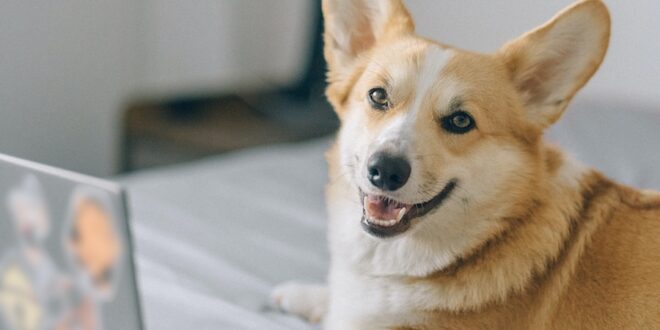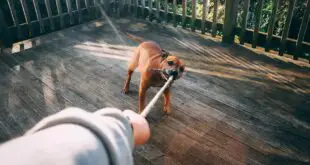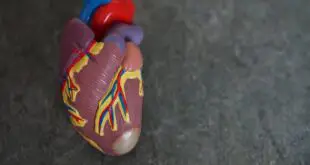Why is my dog not eating his food but will eat human food? Ensuring your dog receives a balanced diet is crucial for health and well-being.
Fortunately, numerous dog foods are available to provide the necessary nutrients for your furry friend. However, it can be concerning when your dog refuses to eat their food and instead opts for human food.
If left unaddressed, this behavior can lead to various health complications, such as obesity or malnutrition.
If you are seeking answers as to why your dog is exhibiting this behavior and are looking for ways to resolve it, you have come to the right place. Continue reading to the end to learn more.
Why Is My Dog Not Eating His Food But Will Eat Human Food? Reasons
We’ve all been there – a steadfast pup who turns up its nose at its bowl only to beg fervently when they catch a whiff of your dinner. Here are some of the reasons behind your dog’s peculiar eating habits.
- He’s bored with his food – If you feed him the same food daily, especially if it is low quality or bland, he may lose interest in it over time. Dogs, like humans, can get tired of eating the same thing every day.
- The dog food is spoiled – Many pet parents never imagine that dog food can also expire. Our four-legged companions possess a remarkable sense of smell and can detect when their food has gone bad and refuse to eat it.
- Fido is not hungry – It is also possible that your dog is not hungry because he has been eating a lot of table scraps and treats throughout the day.
If you constantly give your dog human food as treats or feed him table scraps, he may not have much of an appetite for his regular dog food.
- He’s sick – Loss of appetite is often an early indication that something is wrong with your pet. Just like us, dogs may experience a loss in appetite when they’re under the weather.
If your dog’s refusal to eat persists and is accompanied by other symptoms such as vomiting or lethargy, chances are, there is an underlying sickness.
- Your dog doesn’t like his food – Dogs have taste preferences too, and sometimes, they simply don’t find their dog food enticing. The problem could be the texture or the flavors in their food.
- Dental problem – Dental problems can also contribute to your dog’s reluctance to eat his food. A dog with dental issues, such as tooth decay or gum disease, will find chewing on hard kibble painful.
Remember, most human foods are soft compared to their food, which would make sense if they only opt for softer food.
- Behavioral issues – Dogs are intelligent animals and quickly learn how to get what they want. And many dog parents don’t even notice it.
If your dog realizes that refusing his regular food will get him attention and potentially human food, he may continue to hold out until he gets what he wants.
What Can You Do About It?
Well, the good news is that there are several steps you can take if your dog refuses to eat his food but will eat human food instead. It involves identifying what could be the cause and fixing it. Here is what you can do.
- Try rotating his food – Imagine eating the same meal daily – it can become mundane, right? Well, dogs share this sentiment.
Try switching up his diet by adding foods with new flavors and textures, and your dog will be more interested in eating its food.
- Stop treating him for eating his food – If you’ve been rewarding your dog with treats for eating his regular food, he might have caught on to this clever trick. To break this cycle, put stop treating him for consuming his meals.
- Feed your dog fresh food – Check the expiration date on the packaging and ensure the food is still fresh. Dogs have a keen sense of smell and can easily detect when their food has gone bad.
- Stick to a regular feeding routine – Dogs thrive on consistency and knowing when to expect their meals. If you’ve been inconsistent with feeding times, try a specific schedule. It can help regulate your dog’s appetite and make him more willing to eat his food.
- Try new food – Sometimes, dogs simply do not enjoy the flavor or texture of their current food, and switching to something different can solve the problem. Gradually mix the new food with the old one, and monitor your dog’s reaction.
- Seek help from a vet – A vet can examine your dog and determine if any underlying health conditions contribute to his lack of appetite.
Dental issues, such as tooth decay or gum disease, can make eating regular food painful for your dog. Addressing any health problems can help your dog regain its appetite and enjoy its meals again.
Human Food Is Not Always Good For Your Fido
Feeding your Fido human food may seem like a harmless treat or a way to show them how much you care. However, not all human food is good for dogs.
One of the main reasons is that a dog’s digestive system is different from ours. While we may be able to handle rich and fatty foods, these can cause digestive complications for dogs.
Their bodies are not equipped to properly digest such foods, which can lead to discomfort, diarrhea, and even more serious health issues like pancreatitis.
Additionally, human food often contains an unhealthy amount of sodium for dogs, leading to increased blood pressure and other related problems.
Also, some foods that are perfectly safe for humans can be highly toxic to dogs. Grapes, raisins, almonds, chocolate, macadamia nuts, onions, and garlic are all examples of foods that can be dangerous for our furry friends.
These foods can cause various dog issues, from mild symptoms such as vomiting and diarrhea to more serious conditions like kidney failure.
It is important to ensure that your dog does not have access to these foods and to be aware of the signs of toxicity if they accidentally consume them.
Feeding your dog human food can also contribute to weight gain. It is easy to underestimate the caloric value of certain foods for dogs.
For example, just one ounce of cheddar cheese for a 20-pound dog is equivalent to one and a half hamburgers for a person in terms of calories. This can quickly increase and lead to weight gain and obesity in dogs.
Furthermore, feeding your dog human food can encourage begging behavior. Dogs are quick learners and associate begging with receiving food from their owners.
It can become a persistent habit that is difficult to break. And while you may enjoy your dog wanting something from you, your visitors at the dining table may not see it that during meal time.
Why You Should Feed Your Fido Dog Food
Feeding your Fido dog food is essential for maintaining their perfect muscle tone. High-quality dog food contains the right balance of protein, which is necessary for building and repairing muscle tissue.
Providing your Fido with a balanced diet with the appropriate amount of protein ensures their muscles stay strong and healthy.
Dog food also prevents excessive weight gain. Obesity in dogs can lead to a wide range of health issues, including joint problems, diabetes, and heart disease.
By feeding your Fido a diet specifically formulated for their nutritional needs, you can help them maintain a healthy weight.
Dog food low in fat and calories can help prevent weight gain while providing the necessary nutrients for their overall well-being.
Furthermore, feeding your canine friend dog food gives them the proper energy they need throughout the day.
Dogs are active animals that require energy to support their daily activities, such as walking, running, playing, and even being alert.
Dog food rich in carbohydrates provides a steady and sustained release of energy, ensuring your Fido remains active and energetic throughout the day.
This is particularly important for working dogs or those who participate in various activities such as agility or obedience training.
Conclusion
Why is my dog not eating his food but will eat human food? Well, there are several reasons why your dog has a selective appetite. Some include dental, gastrointestinal, and behavioral issues, among others.
Dogs have specific dietary needs that differ from ours, and feeding them human food can lead to nutritional imbalances and potential health issues.
That’s why it’s important to address this behavior promptly. Where possible, please consult with a veterinarian to determine the underlying cause of your dog’s refusal to eat his food.
 Being Human
Being Human





